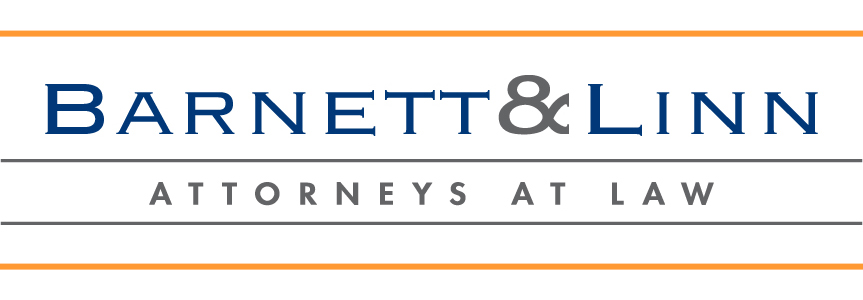Vicarious Liability of Franchisors – Redux

One of our Firm’s specialties is representing Franchisors and Franchisees. In the context of the franchisor-franchisee relationship many issues can arise which the parties try to anticipate in the Franchise Agreement. In late 2012 I wrote an article discussing one of those issues which was the potential liability of the franchisor for the wrongful or negligent actions/inaction of the franchisee, which we refer to as “vicarious liability”. As I pointed out previously, the critical element of vicarious liability in the franchise context is typically the amount of control a given franchisor exercises over the operations of a franchisee. In the franchisor/franchisee situation, this “control” issue can be very tricky.
On the one hand, the backbone of any franchise system is uniformity of service or product. To ensure this uniformity throughout the franchise system, a franchisor necessarily must establish guidelines in order to maintain the standards of quality and operation of the system which are typically expressed in the Franchise Agreement and franchisor’s Operations Manual. Obviously, the franchisor must maintain a certain amount of control over franchisees’ operations in order to ensure the operating guidelines and hence the uniformity of the franchise system are maintained at each franchise location. In addition, the franchisor must maintain the ability to enforce the operating guidelines and take action against franchisees who fail to follow the guidelines.
On the other hand, a typical franchise agreement makes it clear that each franchisee is an independent contractor wholly and exclusively responsible for the safe and proper operation of his/her franchise establishment.
So herein lies the dilemma, to what extent can a franchisor exert “control” over a franchisee to ensure compliance with the uniform operation of the franchise system while not being held liable for arguably “running” the franchisee’s business and hence being held liable along with the franchisee when trouble arises. Courts generally start with the proposition that a bona fide franchisor will not be deemed vicariously liable as an “employer” when a plaintiff works for or was injured by an independently owned and operated franchised business. However, cases continue to arise in which a franchisor has crossed that imaginary “control line” resulting in the franchisor being held liable to a third party along with the franchisee due to the franchisor’s level of control/involvement. For example, in the case last year of Orozco v. Plackis, franchisor-chef Craig Plackis was held liable along with his franchisee for violations of the Fair Labor Standards Act because he got too involved in the day-to-day operation of a franchisee including advising the franchisee about terminating employees and arranging employee work schedules.
So here are some tips gleaned from several past lawsuits involving franchised businesses to avoid a franchisor crossing that imaginary “control line”:
DO NOT run payroll or maintain employment records for franchisee employees. While a franchisor may designate a payroll or bookkeeping service to be utilized by franchisees, such service should not be the franchisor or a subsidiary of the franchisor.
DO NOT set or enforce franchisee’s employment policies. While the franchise agreement and operations manual may provide certain employment policies like requiring professional, courteous conduct of employees, or the wearing of certain uniform clothing, the specific work rules and procedures to be followed by the franchisee’s employees should be determined by and enforced by the franchisee not the franchisor.
DO NOT micromanage, train or directly supervise the franchisee’s employees. While the franchisor will typically provide initial and ongoing training to the franchisee and its managers, training the franchisee’s employees should be left to the franchisee. Similarly, if the franchisor is aware of certain operational deficiencies with the franchisee, the franchisee should be made aware of such deficiencies and it is the franchisee who should take remedial action.
DO NOT establish, control or change the employment conditions of the franchisee’s employees (e.g. scheduling, meals and breaks, timekeeping, etc.). While the franchise agreement and/or operations manual may require certain aspect of the work environment such as hours of operation, staffing requirements, types of service to be provided and equipment to be used, how the services are rendered and the operation of equipment and the day-to-day operation of the franchised business should be left to the franchisee.
DO NOT control the hiring, firing, pay, promotion, demotion or classification of franchisee’s employees. While the franchise agreement and/or the operations manual may specify certain minimum age, experience, or certifications of franchisee’s employees, all decisions as to who to hire, terminate, promote and the pay scales of employees should be made by the franchisee.
While the above precautions are not an exhaustive list of control indicators to avoid, they hopefully provide some guidance is recognizing when the “control line” may be crossed.
The above would also suggest that should a franchisor enter into a management agreement with a franchisee or find it necessary to take over temporary operation of a franchisee’s business (as often times permitted by the franchise agreement under certain circumstances), the franchisor would most likely be exposed to liability during the period of such direct involvement and operation of the franchisee’s business.
The above list should also be instructive to franchisees. The franchisor provides a model for operating a franchised business and can monitor and assist (but not control) the franchisee in achieving a successful business. However, the operation of, and ultimately the success or failure of, the franchise business rests with the franchisee.
Article by Roger D. Linn © Barnett & Linn
This document has been provided for informational purposes only and is not intended and should not be construed to constitute legal advice. Please consult your attorneys in connection with any fact-specific situation under federal law and the applicable state regulations that may impose additional obligations on you and your company.
